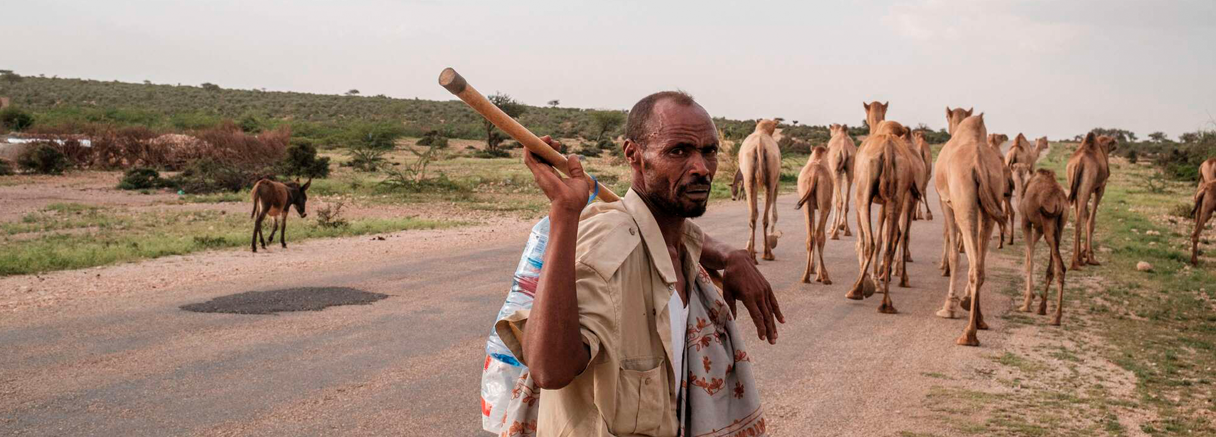Experts call for climate finance to support African livestock adaptation

The calls come as more than 17,600 hectares of farmland in Kenya have been destroyed, over 13,400 livestock deaths have been reported and more than 500,000 people are struggling to cope with the floods.
KDB Managing Director Margaret Rugut Kibogy signed the open letter titled 'Why Livestock Matter', which calls on world leaders to increase funding commitments at COP28 to better protect livestock from drought, heat and other climate extremes in Africa.
Other recent signatories include Josefa Sacko, African Union Commissioner for Agriculture, Rural Development, Blue Economy and Sustainable Environment.
The letter, which underscores the importance of livestock to Africans, has also been signed by scientists, farmers and experts from the Nairobi-based International Livestock Research Institute (ILRI), CIRAD, the French Agricultural Research Centre for International Development, and the Consortium for African Youth in Agriculture and Climate Change (CAYACC).
Other prominent signatories include Heifer International, the IGAD Centre for Pastoral Areas and Livestock Development (ICPALD), the West African Platform of Traditional Pastoral Leaders (PRAO) and Vétérinaires Sans Frontières International.
The open letter follows unprecedented drought cycles in the Horn of Africa that have led to the loss of an estimated 13 million animals in the last two years and left more than 1.4 million children under the age of five without a daily glass of milk.
According to some of the continent's climate change experts, African voices are ignored and overlooked at COP meetings, but for sub-Saharan Africa, livestock is a climate solution with legs.
The open letter says that for millions of people across Africa, livestock is their lifeblood.
“Animals such as camels, cows, and donkeys, along with goats, sheep, and chickens represent food, livelihoods, fertiliser, fibre and a convertible source of income, especially if crops fail,” states the letter in part.
The letter states that pastoralists rely on livestock to survive in areas where crops cannot grow and that Africa relies on pastoralists to produce half of its meat and milk, a daily glass of which helps children develop both physically and cognitively.
The letter goes on to say that livestock provide valuable agricultural resilience to climate extremes.
“The ability to move animals to find feed, water, and shade means livestock de-risks crop farming while providing a safety net for failed harvests,” adds the letter.
“Livestock also boost the climate resilience of communities, making them less vulnerable in the face of shocks, and better able to rebuild in the aftermath of disasters.”
According to the letter, the increasing frequency and duration of extreme weather events are making it more difficult for livestock farmers to adapt in time to feed a growing population.
In Niger, floods have killed thousands of animals and new conditions are affecting the spread of animal diseases.
It can take up to five years for farmers to recover from these losses, if at all, according to UN reports.
“We call on Parties at COP28 to urgently make the case for more climate finance to support adaptation for sustainable livestock systems in Africa. We urge high-income countries to meet their commitment to provide $100 billion per year in climate finance for developing countries.”
The letter specifically calls on African countries to make adaptation of livestock systems a core part of their climate change strategies.
“As of last year, the continent received only 11 per cent of its total climate finance needs at just $30 billion, and less than one per cent of climate finance reached the livestock sector,” adds the letter.
The signatories say that adapting Africa's livestock sector to a changing climate must be a priority at COP28 for the sustainable development of a continent that has contributed less than three per cent of global greenhouse gas emissions.
This includes the development of more reliable fodder and feed, more resilient indigenous livestock breeds, more resilient animal health systems and support services such as digital information tools, finance and index-based livestock insurance.
“Livestock should be included in national disaster risk reduction plans so that they are protected as important assets in the face of climate-related disasters,” the letter adds.
The letter concludes that climate adaptation in Africa's livestock sector offers a unique opportunity to sustainably feed and support a quarter of the world's population by 2050.
“For Africa to feed itself, we need to invest in livestock. It is not only an economic issue but a form of climate justice. For many of Africa’s 800 million herders and smallholder farmers, a future without livestock is a future without life,” concludes the letter.